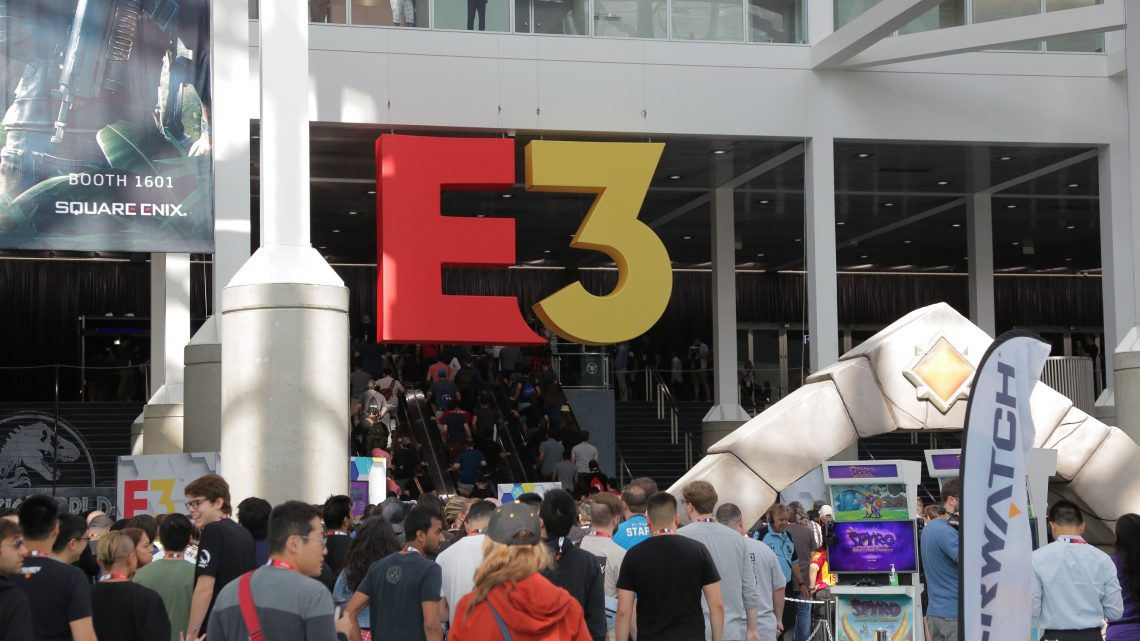
The Gaming Industry’s Abuse and Harassment Issues Aren’t Isolated Incidents
June 26, 2020On this week's Waypoint Radio, the crew discusses the recent slew of sexual and emotional abuse, harassment, and assault allegations happening across all sectors of the video game industry, from game-specific streaming communities to AAA game developers. We discuss how examples in other industries show that this is a systemic issue across all of society, but also the specific ways in which the gaming industry puts people trying to break into the industry in particularly dangerous positions. You can listen to the full episode and read an excerpt below.
Content Warning: Discussion around recent abuse, sexual harassment, and sexual assault allegations from approximately 14:33 - 53:15. Specific reference to abuse within families from 46:28 - 48:29
Austin: Because this is a kind of culture wide problem this is not just a thing unique to a specific company or a specific scene. There can be scenes that have an increase in [sexual harassment issues] because they especially don't take allegations seriously. There can be a company, where we've seen again and again when HR serves as PR, HR serves to cover things up. We can speak about VICE here very clearly that the HR department at VICE for a long time was functionally covering up, or providing opacity for, abuse and harassment allegations at the company. That's one that's been written about, there was a huge scandal a few years ago we know that that's the sort of thing that can happen. I would say that the culture here seems better now, and you can do that sort of comparison between two different companies, but when it's a cultural problem throughout the veins of the entire culture, it's going to happen everywhere and that's why it requires a larger response.
Gita: There are some things that I've been seeing people talk about online, trying to understand why the culture of video games has led to so many different people abusing their positions of power, often men but not always men. Some people are finally taking a step back and thinking "what is it about video games?" That they have deliberately found this market of young men and are selling them explicitly through marketing, these ad campaigns about "you are the most powerful person in the world." Maybe that's not good to encourage that throughout our entire culture, throughout our entire field.
Austin: Yeah, one: video games and video game culture: deeply misogynistic, 100%. But I do think that this also has happened in music journalism, this has also happened in the music industry. Not that the music industry is any less misogynistic or connected to rape culture, and I think that's a broader point I'm making.
Gita: The dismantling of the patriarchy is the thing that we need to do to make sure this never happens again. We need to un-build culture and build it back up again.
Austin: Light work.
Gita: Yeah we can do that over the weekend, basically.
Austin: Uh-huh, we'll keep working on it.
Gita: I do think it's worth thinking about the particularities of how, well, in the culture of music there has always been this narrative of groupies, right? Where "oh these are just young women and they want to sleep with all these bands and then be tossed aside, they want that," you know? The ways in which women are treated in the music industry, there are particularities of that misogyny and how it's played out. And there has been efforts from artists in the industry to dismantle that and rebuild it, not entirely successful, but there have been great strides. I think in games we have not even gotten to the "not entirely successful restructuring" part, you know? It's beyond time for us to talk about the particularities of how misogyny plays out in our scene.
Rob: So it's a weird thing, every industry is grappling with this and so, to a degree, I think there's a lot of places where this feels like this is treated as a local story, and in some ways it is because the characteristics of abuse and poor behavior do change based on the shape and structures of an industry. Also this is part of a broader reckoning we see happening across a lot of different industries. Something I find myself thinking about a lot is how many places is this happening where public figures don't exist in the same way as in the entertainment industry. How many places do you have these sort of abusive relationships happening but you never hear about them because nobody cares what the CEO of a 12 store franchise in the midwest does? But these things probably happen everywhere, and I think it's important to keep the focus in games because this is our beat, this is our backyard.
But I think one of the things that is really clear right now about this moment is that when we talk about structural inequalities and precarity affecting vulnerable people that's happening across the board, and it may take on a different cast depending on what industry you're talking about, but in the last few years and certainly in the last couple months, it's become crystal clear that it is happening in myriad ways and myriad forms across pretty much any type of activity you can imagine. And that is really disturbing and I think a lot about how many predators are out there in industries where, just because they are so anonymous, will never be outed in that same way, right? How many petty tyrants are out there mistreating people and putting a cap on their careers, and that just doesn't get attention because these are considered "boring" jobs, "boring" workplaces.
Gita: Youtubers used to be in that sort of same category, not "boring" jobs, but three to four years ago people would do the same kind of thing where they say "hey this youtuber XYZ mistreated me in XYZ ways," and part of the response when inevitably people accuse them of lying was "how could this person manipulate you? How could they be in a position of power, they're a YouTuber?" Now, after that enormous case with the music youtuber that was soliciting nudes and nude videos from underage fans, where he was arrested and is now in jail, people understand more that with a cult of personality it doesn't matter how "famous" they are. As soon as you are in charge of a community, or the figurehead that's in charge of a community, you have a responsibility to the community to not, I don't know, abuse them? Just a suggestion. People have a better understanding of that, but that took a really long time, and there were a lot of victims in that time.
That is always the thing that hurts, you know there's going to be people that don't have this chance to have their abusers held accountable, and it's painful. I was assaulted in college and then assaulted after college, and it's really personal for me because I know I have a duty as a journalist to be somewhat impartial and have a remove, but I understand the pain, because I felt a lot of this pain and confusion and frustration and just deep, deep anger that no one did anything, and that I was left alone to pick up the pieces. So you think just, if that hurts so much for me, then there's not just the people that have come forward are feeling that, so so many people are.
Patrick: In this case when you're speaking to Ubisoft or an Insomniac, studios that have some level of infrastructure, in theory an HR department that can handle complaints, whether they do so appropriately is an open question and something that I think is being reckoned with in this moment. Specifically what's different about YouTube and Twitch is, and this is a broader cultural problem, where our institutions fail us and so we turned to corporations, who in a weird way have become closer to our government institutions in a lot of ways, to solve those problems for us. So when someone on YouTube or Twitch or any of these services is accused, there's no department to turn to, it's just make enough noise or organize a blackout on Twitch and hope that they pay attention, but there's no formal record, there's not even paperwork to follow where you can try and hold them accountable.
It's already so difficult in places that are supposed to have an infrastructure to serve the issues of their employees, and the comparison of YouTube creators being the employees of YouTube isn't perfect, but for the sake of this discussion is worth thinking about because part of the reason those institutions work is because they don't actually want to be responsible for the people they make money off of, and so they are thus so much less reliable and then require society, because we can't we can't expect the government regulation to come in and do anything about this, so instead it's just if we make enough fucking noise on on Twitter, maybe they'll pay attention, but what does that mean? Quietly banning some people for how long, will they take away their status to make money on old videos? Are they still making 10s of thousands off stuff they [already made]? There's just a lack of transparency and no real levers to pull other than making noise which is maybe satisfying in the moment but does not necessarily indicate large structural change.
This transcript was edited for length and clarity. Discussed: Video Game Industry Abuse 14:33, Gears Tactics 57:56, Divinity Original Sin 2 1:02:26, Hades 1:14:52, Humankind 1:23:05
You can subscribe on Apple Podcasts, Google Play, and Stitcher. If you're using something else, this RSS link should let you add the podcast to whatever platform you'd like. If you'd like to directly download the podcast, click here. Please take a moment and review the podcast, especially on Apple Podcasts. It really helps.
Interaction with you is a big part of this podcast, so make sure to send any questions you have for us to gaming@vice.com with the header "Questions." (Without the quotes!) We can't guarantee we'll answer all of your questions, but rest assured, we'll be taking a look at them.


